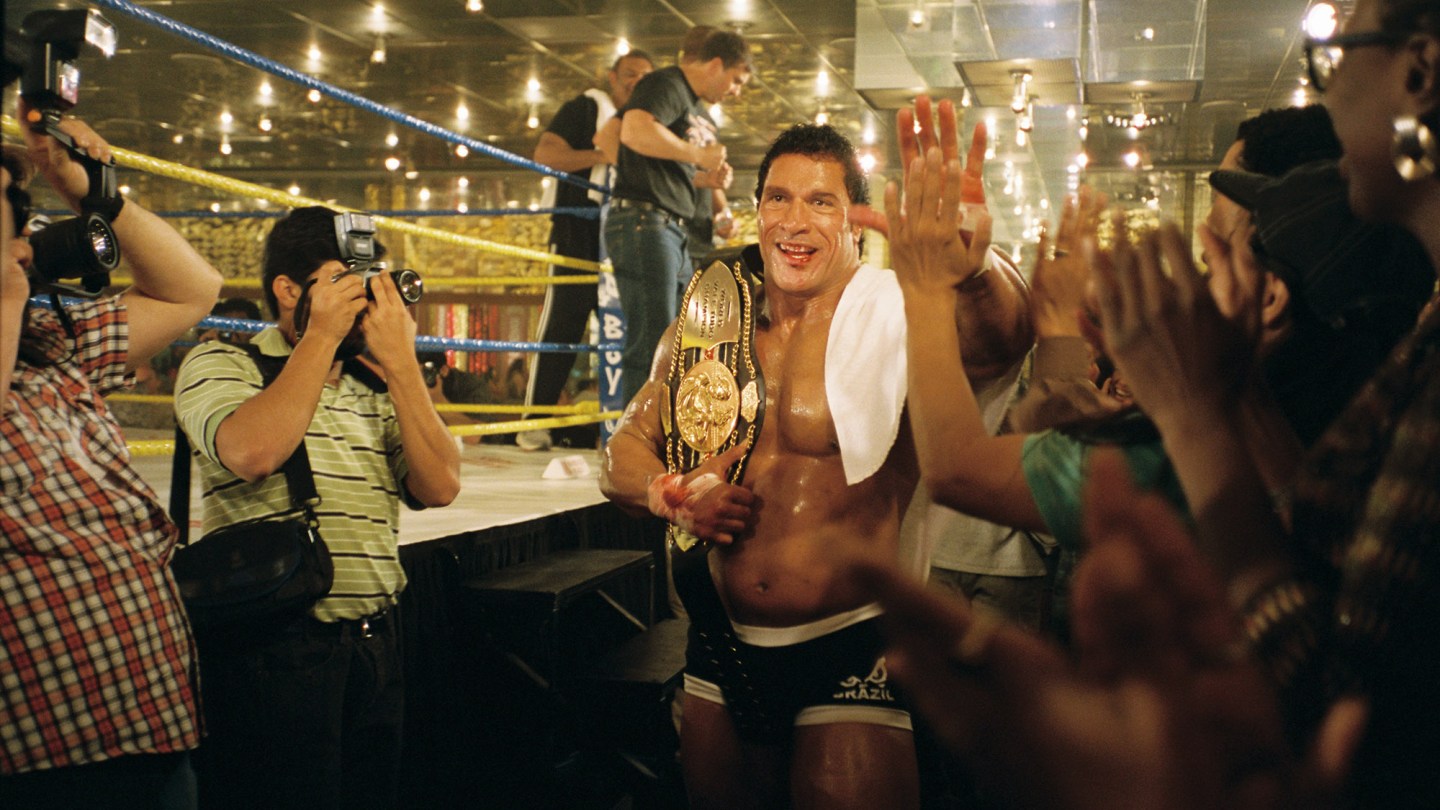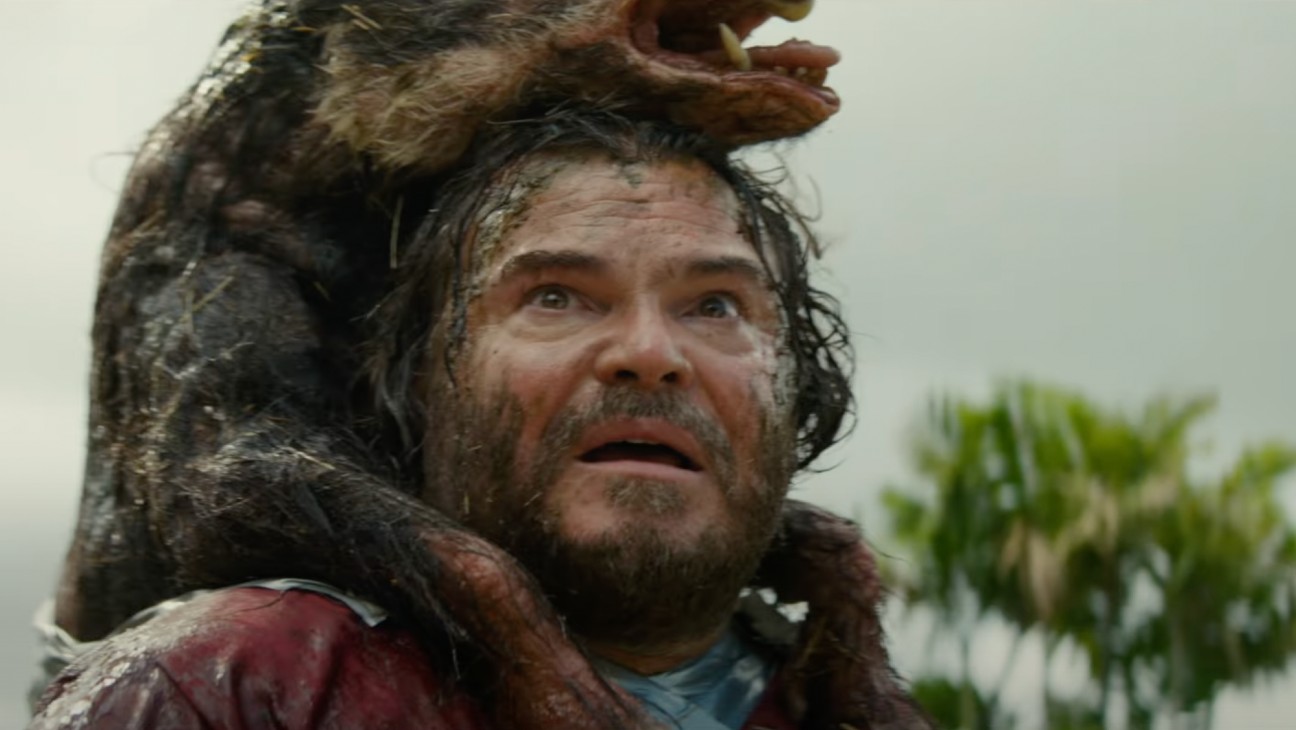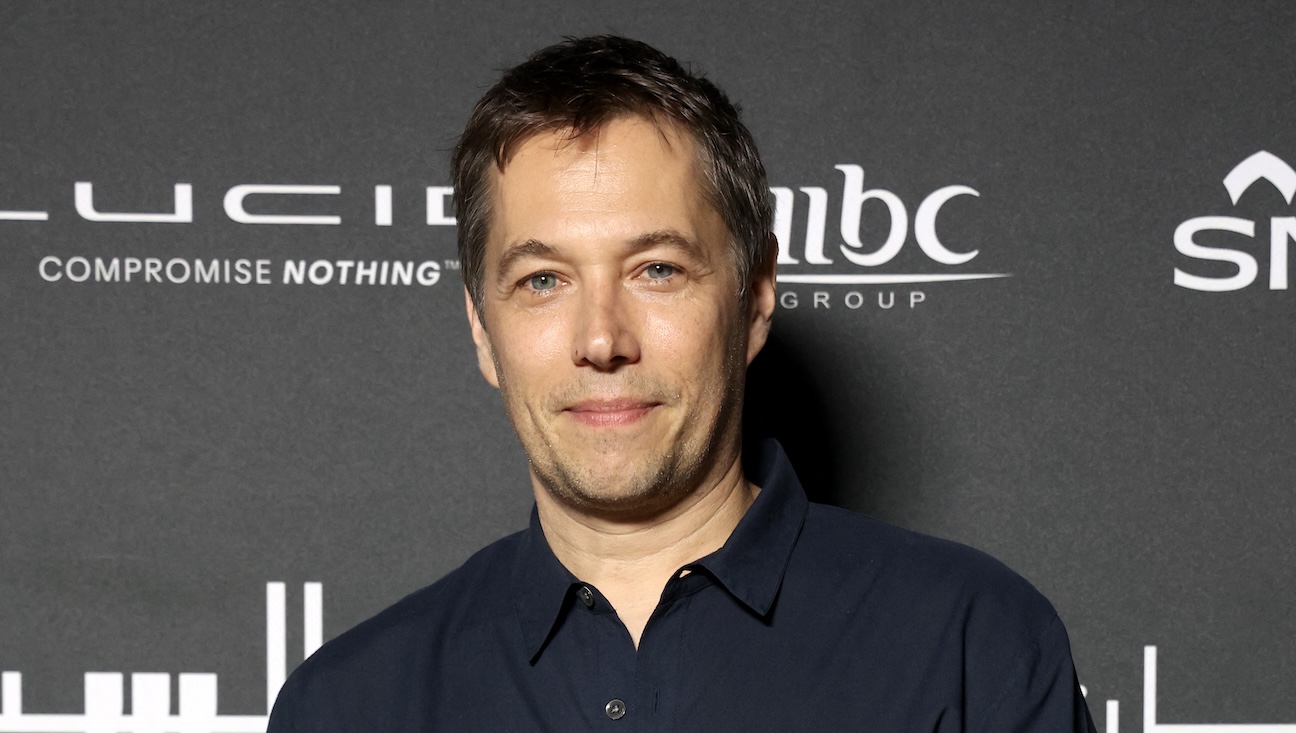Lithuanian writer-director Romas Zabarauskas wants to keep you on the edge of your seat and wants to keep you guessing. His new crime drama The Activist (Aktyvistas), has drummed up box-office business in his home country, and now the noir thriller is setting its eyes on its international premiere at the 29th edition of the Tallinn Black Nights Film Festival (PÖFF) on Friday.
Robertas Petraitis, known from Lithuania’s 2026 Oscar contender The Southern Chronicles, stars as Andrius, who is full of grief and guilt after a masked intruder kills his secret lover Deividas (Elvinas Juodkazis), who is Lithuania’s most influential human rights activist. Andrius has been too afraid to come out or publicly support the queer community ahead of the planned first-ever LGBTQ+ march in the city of Kaunas.
But the murder leads Andrius to launch his own covert investigation without knowing whom to trust, especially as neo-Nazis threaten the marchers and politics plays its own role. The cast of The Activist also features Vaslov Goom as Bernardas, determined to keep activist group Rainbow going strong, Redita Dominaityte as the politician Rolanda Markeviciene, Tekle Baroti as Laima, whose loyalties are torn, and Karolis Kasperavicius and Arnoldas Augustaitis as neo-Nazis Mykolas and Rytis. Alief is handling world sales on the film, which the director co-wrote with Marc David Jacobs and Vitalija Lapina.
THR talked to Zabarauskas about The Activist, how it functions as the third film in his queer trilogy after The Lawyer (2020) and The Writer (2023), why he likes working with drama and tension to set his work apart from other independent movies, and what is next for him.
The creative didn’t always plan for a trilogy. “At first I made a single film, The Lawyer,” Zabarauskas tells THR. “And then I started to make this film, and then realized that this could be a trilogy. But basically, these films are only related thematically, not in terms of the plot. They all center around queer male couples in different difficult political circumstances. And they delve into different genres, because the first two films are more of romantic dramas, and this one is a thriller. But in a sense, all of them share a certain sensibility. ”
Life isn’t always simple and straightforward, and neither are the filmmaker’s narratives and characters. “I like to explore those political circumstances in a complex way and reverse some stereotypes about Eastern Europe and ask difficult questions,” Zabarauskas explains. “I started to develop the idea for The Activist in 2018, and back then, I was already interested in exploring this growing phenomenon of the far right.”
His approach is different from what you usually hear about, though. “A lot of people think it’s very regressive, and, of course, it is, but it’s also very modern and surprising in its communication and in its allies, even including LGBTQ+ leaders themselves,” emphasizes the director. “If you look at France, one of the leaders of the far-right National Rally is Sébastien Chenu, who lives with his partner. Or if you look at the AFD in Germany, there is Alice Weidel, who lives with a Sri Lankan woman, even though the party’s politics are homophobic.”
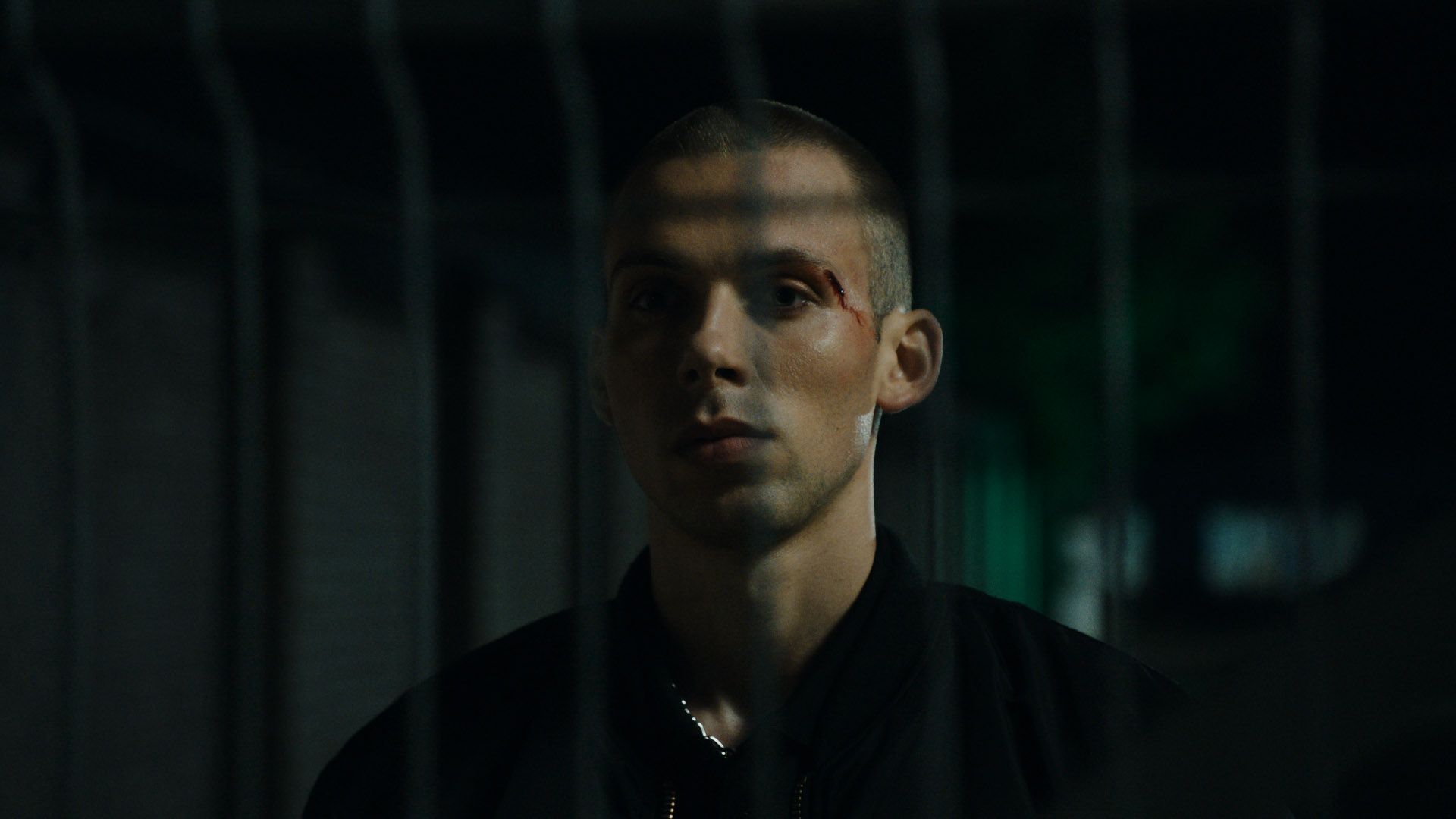
The Activist even touches on how vaporwave and synthwave music has been co-opted by far-right groups in the so-called fashwave genre. “There is this bar scene, and I wanted to use a specifically created track to explore these underground aesthetics,” Zabarauskas tells THR. “It’s important that we look into this and discuss these unexpected, surprising forms that the far-right is taking, because only then can we effectively fight it in the war of ideas.”
Where does the writer-director see his role in the film space? “I don’t really like some of the trends in arthouse or even in queer filmmaking, specifically when they focus on these humanistic stories and messages and this victimization,” he says. “Or the other extreme is films that go completely surreal and very eccentric or very sexual. I want to represent modern society in all its complexity, and I think that makes for good drama. I feel it’s almost provocative to say that I want to make drama-driven films.”
Zabarauskas even quips that he could maybe be “more successful” if he had a different approach to film. Not that The Activist isn’t going places. TLA Releasing recently picked it up for the U.S. and Canada, with the Baltics going to WBD International Content for HBO Max. “The rise of the far-right is pretty universal,” points out the director, sharing that he is “grateful” and “happy” for the movie to get to travel thanks to such deals. “I want to address global issues. Even though this film takes place in Lithuania, I researched more globally for it.”
In addition to the French and German politicians he mentioned earlier, Zabarauskas pointed to his research touching on the likes of Milo Yiannopoulos, “another gay, far-right symbol,” and also “the TERF phenomenon, the trans exclusion by radical feminists, where the most famous example is probably J.K. Rowling.” Again, the director found that the world isn’t as easy and clear as you may want to believe. “Curiously, there are some queer women who also align with these ideas and very unexpectedly become allies to the far-right movement.”
Concludes the Lithuanian filmmaker: “All these topics are uncomfortable, but I think we have to talk about them. One issue here is that arthouse cinema oftentimes preaches to the converted.”
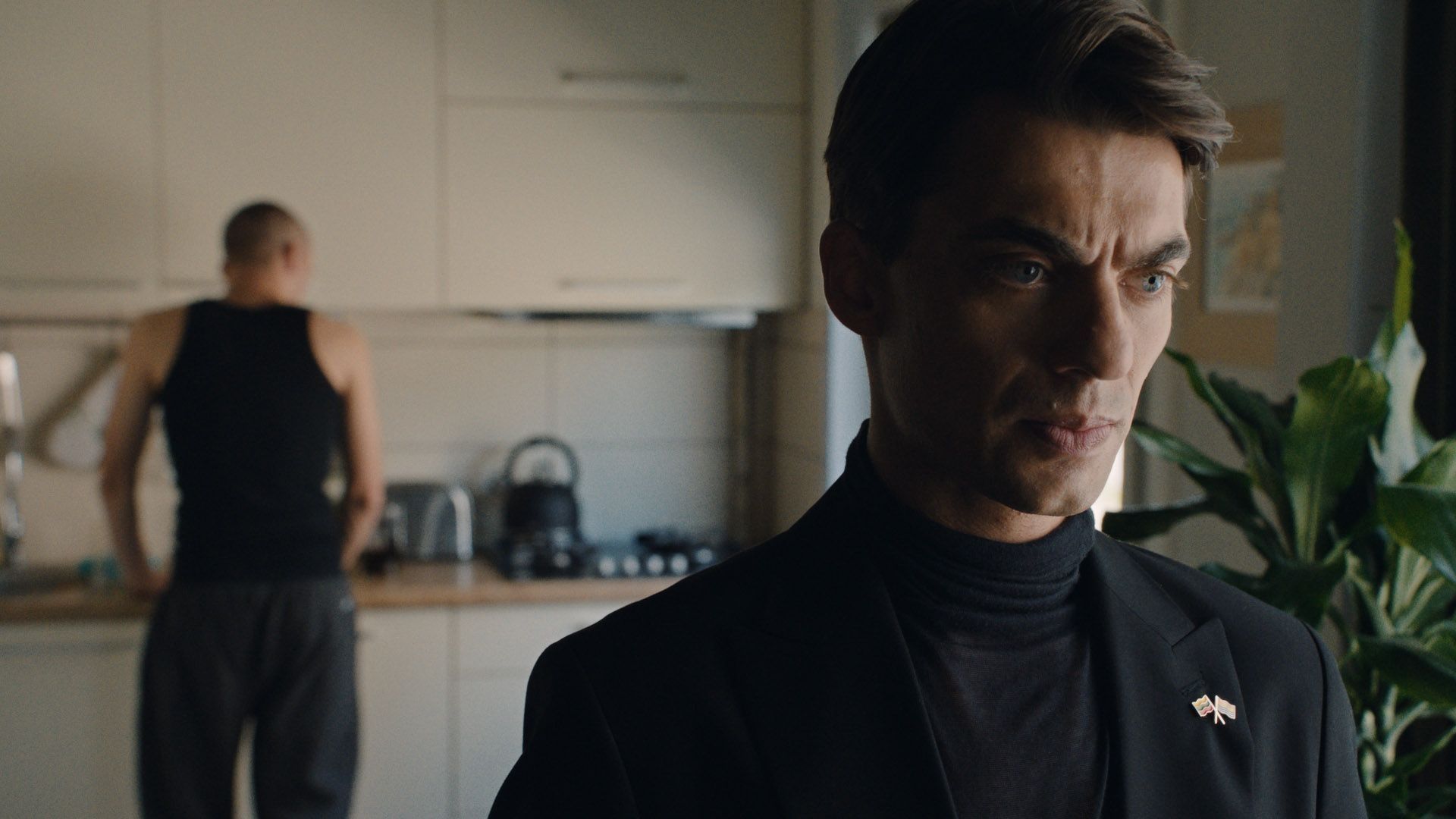
Other institutions of Western society also fall short too often, the director feels. “That was one of my motivations as well. We need to look at the faults of activists and liberal politicians when we seek answers,” Zabarauskas tells THR. “That said, I still want to highlight that I believe in liberal democracies. This film specifically shows different institutions of liberal democracy, such as politics, media, and police. And while I criticize all of them, I still show that civic society, with activism. It is to say that democracy can work.”
What’s the Lithuanian writer and director doing next? “I’m developing another feature film, but I cannot really talk about that yet,” Zabarauskas says. “I’m also co-writing another feature I cannot talk about either. But I can mention that I have started a PhD in film at the National Film School of the Lithuanian Academy of Music and Theatre.”
And he is developing a screenplay for a fiction mini-series about Jonas Mekas, with the permission of the Jonas Mekas Estate, using a five-month scholarship from the Lithuanian Film Center that was awarded to him so that he can write the pilot script. Mekas was a Lithuanian-American filmmaker, poet, and artist dubbed “the godfather of American avant-garde cinema.”
“He was the co-founder of the Anthology Film Archives and a great film critic and filmmaker. He befriended John Lennon and Salvador Dali and had a very fascinating life,” concludes Zabarauskas. “So, it is a very ambitious project.”


